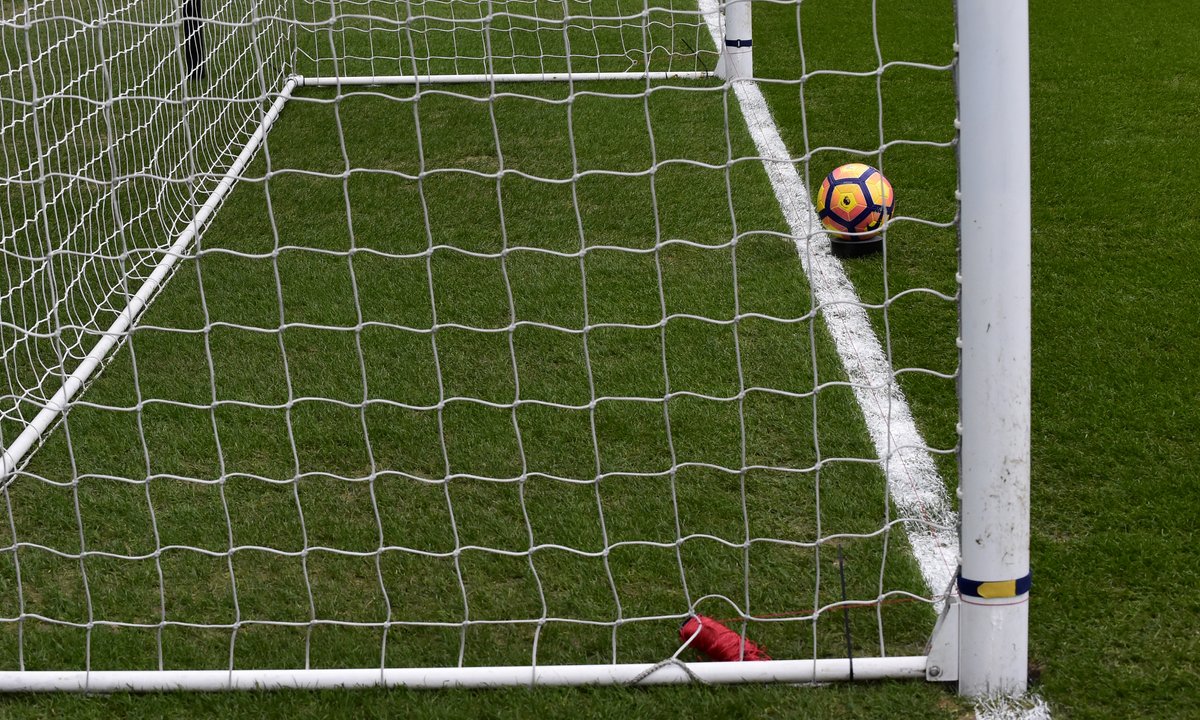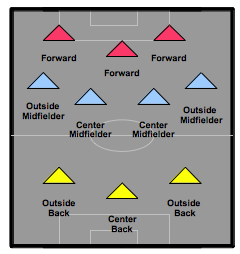
A soccer tryout lets coaches and players share information. This is a great way to show off your skills and make new friends. There are some things that you need to remember before you attend a tryout.
Tryouts for soccer
Before you sign up for a tryout, there are many important things to know about soccer. It is important to understand the rules and how coaches select players. Understanding how the ratings system works is essential. You should understand what coaches look for in players.

Preparing for a soccer tryout
While it can be stressful to prepare to tryout for soccer, the right approach can help make this a positive experience. It doesn't really matter if your goal is to try out for a different club or advance to the next level. In the weeks before the tryout, make sure you train regularly and prioritize nutrition. Practice juggling with a dog when you prepare for outdoor tryouts. You should be prepared to try out new positions and learn new skills.
Skills required to play at a soccer tryout
You can stand out at soccer tryouts by focusing on what makes your unique. The coach seeks players who possess the X factor. These attributes can be a leader, motivator or both.
Evaluation of soccer tryout players
It is important to evaluate players based upon their technical and athletic abilities. A points system can help you do this. It's important to grade players based upon their mental games, initiative, and hustle. It is also a good idea to have all players wear numbers so you can easily take notes. A one-on-one conference can be held if there are any questions or concerns regarding a player.
Avoiding common mistakes during a soccer tryout
You can maximize your chances of being accepted into a soccer club, despite the pressure. Here are some steps to take. Be calm, stay focused on the task at-hand, and remember the reason you are coming to the tryout. Every player is unique, so make sure to take time to create a list of the skills you have to offer and to practice them every day up to the tryout.

Preparing for a Soccer Scrimmage
Here are some tips for getting ready for a soccer scrimmage. First of all, make sure you bring a soccer ball to the tryout. Next, you will need to determine the level and duration of the competition. For additional advice, you can consult former players and coaches. Always show up on-time with your gear. Your coach will be impressed that you are on time and have all your gear in order.
FAQ
What is soccer?
Soccer is an international game played by two teams. Each team has a goal at one end. The goal of soccer is to determine which team has the most goals. In addition, there are rules governing how the ball may be handled and who can play it. While soccer was a sport that has existed since the late 1800s, in England it was not recognized by FIFA until its first international championship in 1930. Today, more than 200 countries have national federations that govern their own leagues and tournaments. Over 3 billion people play soccer worldwide as of 2016.
What is a goal kick, exactly?
Goal kicks are the moment when a goalie places the ball above the crossbar and into a net. Goal kicks often are called "golden moments." A long-range shot just short of the goal is an example of a golden chance.
What does a defender do for soccer?
Defenders often defend against attackers attempting to score goals. Defenders defend against attackers trying to score goals by blocking shots and tackling them.
Statistics
- From the 1850s onward, industrial workers were increasingly likely to have Saturday afternoons off work, and so many turned to the new game of football to watch or to play. (britannica.com)
- After hosting an entertaining World Cup finals in 1994, the United States possessed some 16 million football players nationwide, up to 40 percent of whom were female. (britannica.com)
- Even with the new issuance, control of the club will be retained by the Glazer family as they will retain 67% of B shares which have voting power, so little will likely change in the general approach taken to the finances of the club. (sites.duke.edu)
- The word "soccer" is a British invention that British people stopped using only about 30 years ago, according to a new paper by University of Michigan professor Stefan Szymanski. (businessinsider.com)
- the estimated cumulative television audience for the 2006 World Cup in Germany was 26.2 billion, an average of 409 million viewers per match." (en.wikipedia.org)
External Links
How To
How to play football
Soccer requires the ability to dribble, pass, shoot, head, tackle, and other skills. You should always try to improve these skills. You should practice them daily. These are the steps you need to follow if you want to learn to play soccer.
-
Practice dribbling. You can practice dribbling on the field until it becomes natural. When you start practicing dribbling make sure that you do it in short bursts of 5 minutes at a time. You can increase the time to 10 minutes once you are comfortable with dribbling. Keep practicing this technique daily.
-
Practice passing. Practice passing the ball in front of you and behind you. It is important to correctly pass the ball to the person in the available space. Avoid making long passes. It's better if you throw the ball directly to the player who needs it. This way you can save energy and keep your body warm.
-
Practice heading. You need to be able place the ball in the net perfectly when you are heading. You must practice positioning yourself to achieve this goal. Face the target and stand next to the goal line. Now, bend forward slightly and place the ball underneath your chin. Next, raise you head up and point your eyes towards the net's top left corner. Your eyes should point straight ahead. Finally, raise your arms and let go of the ball.
-
Try to tackle. Tackling is one of the hardest techniques to master. But once you master it, football is much more enjoyable. For starters, tackle with your chest and shoulders, and don't go low. Remember to keep the arms straight up and close to the body. A small group of two players is the best way to attack. One person acts as the defender and the other is the attacker. The attacker must be tackled as soon the attacker passes the defender.
-
Learn how to shoot. Shooting is a skill that is difficult to master and requires a lot practice. Find a place where you can shoot comfortably (e.g. The goal is near your target. Then, focus on your form. The ball should be held between your hands. Point your toes up and bend your knees. You can shoot the ball by moving your wrist in a circular motion. The goal should be in the lower right corner.
-
Practice running. Running is another skill you need to learn. Start slowly and build speed. You should not use running as a way to attack because it can tire your muscles. Instead, help your teammates by running towards the goal.
-
Practice kicking. Kicking is one of the easiest skills to learn but also one of the toughest. To kick accurately, you must strengthen your core and legs. Now, put your feet together. Lift one leg at the time. Slowly kick it towards the net using your heels.
-
Keep practicing dribbling. This is probably the most essential skill needed to become a great player. Dribbling allows you to control the pace of the game. It is essential to control the pace of the game. Without it, your opponent would be able to catch up with you and even surpass you. Consistency is the key to mastering dribbling. You should not change how you dribble daily. Stick with what works for your body.
-
Practice kicks without any restrictions. Free kicks are often given after a foul is committed or when the goalkeeper makes mistakes. Free kicks allow you to score goals without having to play the entire match. Always aim for the corners of your goal. Remember to use your instep and your heel.
-
Practice defending. It is all about position. When playing defense, make sure you stay close to the opponent's player. If he receives the ball, try to block his path and prevent him from scoring. Always be attentive to your teammates' safety.